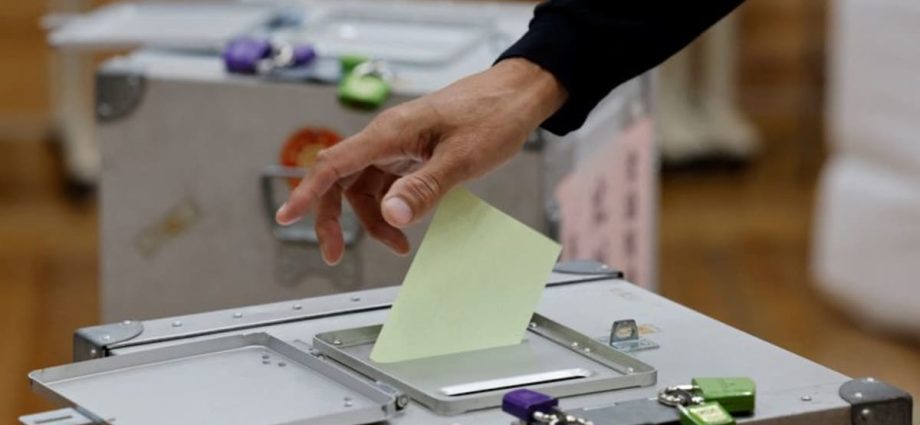
TOKYO: Japan’s ruling coalition may fall short of a parliamentary majority, exit polls for Sunday’s (Oct 27) general election showed, raising uncertainty over the make-up of the government of the world’s fourth-largest economy.
A poll by national broadcaster NHK showed the Liberal Democratic Party (LDP), which has ruled Japan for almost all of its post-war history, and junior coalition partner were set to win between 174 and 254 of the 465 seats in the lower house of Japan’s parliament.
The main opposition Constitutional Democratic Party of Japan (CDPJ) is predicted to win 128 to 191 seats. The outcome may force the LDP or CDPJ into power-sharing agreements with other parties to form a government.
A poll by Nippon TV showed the ruling coalition would win 198 seats to the CDPJ’s 157, both well short of the 233 seats needed to reach a majority, as voters punished Prime Minister Shigeru Ishiba’s party over a funding scandal and inflation.
“It was a tough fight for the LDP,” Shinjiro Koizumi, the LDP’s election chief, told NHK.
Ishiba called the snap election immediately after being elected to head the party last month, hoping to win a public mandate for his premiership. His predecessor Fumio Kishida quit after his support cratered due to anger over a cost of living crunch and a scandal involving unrecorded donations to lawmakers.
The uncertainty comes nine days before US voters choose a new president and as Japan faces economic headwinds and increasingly tense relations with neighbouring China.
The LDP has held an outright majority since it returned to power in 2012 after a brief spell of CDPJ rule.
Political wrangling could roil markets and be a headache for the Bank of Japan, if Ishiba chooses a partner that favours maintaining near-zero interest rates when the central bank wants to gradually raise them.

